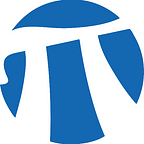Cats, mathematicians, and low-dimensional topology, with PIMS PDF Nicholas Rouse at UBC.
By Lisa Sammoh, Communications and Events Assistant.
Nicholas Rouse obtained his PhD at Rice University in 2022 under the supervision of Alan Reid. He is currently a PIMS postdoctoral fellow at the University of British Columbia working with Ben Williams and Liam Watson. His research focuses on applying number theory and algebraic geometry to problems in 3-dimensional topology.
Tell us about your academic journey.
I grew up in Memphis, Tennessee in the United States, and obtained my mathematics undergraduate degree from the University of Chicago in 2016. In 2022, I completed my PhD at Rice University under the guidance of Alan Reid. I applied for a postdoctoral position at UBC, and Liam Watson contacted me regarding the PIMS application. Currently, I am being supervised by Prof. Watson and Prof. Ben Williams at UBC.
What field are you in and what is your current research on?
I specialize in low-dimensional topology, focusing on hyperbolic 3-manifolds, which are both plentiful and rigid, unlike in other dimensions. In dimension 3 and higher, hyperbolic manifolds play a central role, while in dimension 2, there is a large Teichmüller space worth of hyperbolic structures on most manifolds. The Geometrization Theorem states that 3-manifolds can be decomposed into geometric pieces, of which hyperbolic geometry is the most interesting and least understood.
My work aims to extract geometric information from number-theoretic invariants resulting from rigidity. Specifically, I study the behavior of these invariants under certain operations, such as cutting along a disk and gluing together copies of what remains. The picture below illustrates this operation.
What does research and life balance mean to you?
As a mathematician, I can work on math as much as I can find time for, which is both a blessing and a curse. Nonetheless, I think taking breaks is important. During my breaks, I enjoy exploring Vancouver’s food scene or playing online games with friends from my undergraduate and graduate days. It is a nice way to think about something else and keep in touch with friends who have moved across North America. Working in Vancouver also allows me to see my partner more frequently since she now works in industry in Seattle. We have already visited each other several times, and this benefits my research-life balance. She also has two cats, one of whom is pictured in the attached photo along with me in my doctoral regalia.
What has been your best discovery since arriving at UBC? What are you looking forward to learning and/or seeing?
The most significant discovery for me wasn’t made by me, but rather pointed out by Ben Williams. In graduate school, I had a narrow perspective on the invariants and objects I studied, and viewed them as simply existing and useful without considering their deeper significance. While this strategy is necessary for quick paper submissions and writing theses, discussing the invariants with Ben revealed their naturalness from a different perspective. I’m optimistic that his viewpoint will lead to interesting new questions and work.
Nicholas will be speaking at the PIMS Emergent Research Seminar Series, on April 19, 2023, at 9:30 AM Pacific. Details on his talk and poster, Quaternion algebras for surgeries on knots, can be found here.
